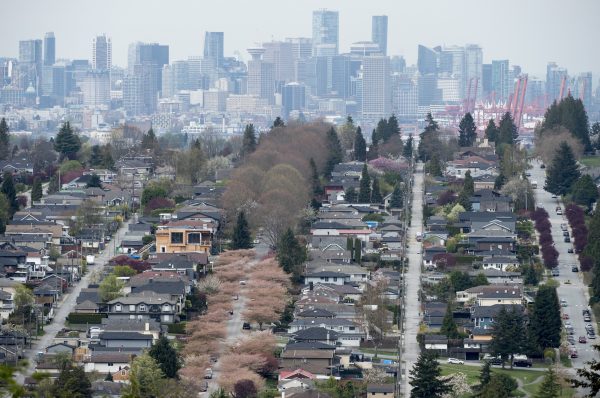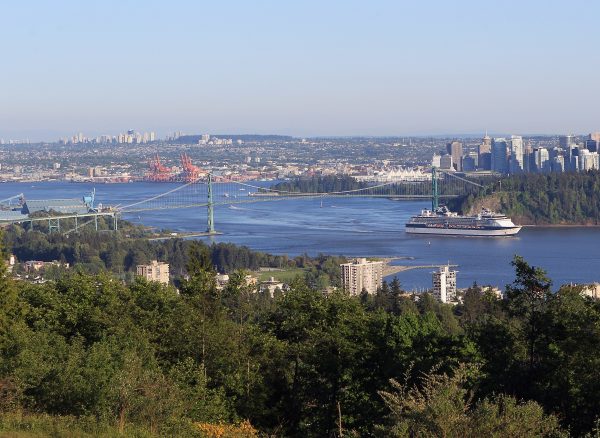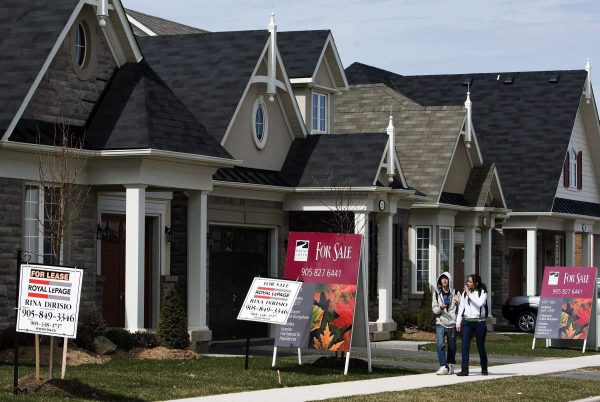Marnie Cathcart writes in the Epoch Times:
As of Jan. 1, 2023, foreign investors will be banned by the Canadian government from purchasing non-recreational residential property.
The federal government announced the full details Wednesday for new regulations that have been finalized as part of the Prohibition on the Purchase of Residential Property by Non-Canadians Act, which was passed on June 23 and will be in place for two years before being automatically repealed.
Ahmed Hussen, minister of housing and diversity and inclusion, said on Dec. 21 that the government’s goal is to ensure the housing market remains available and affordable to Canadians, and prevent houses from being used “as financial assets for foreign investors.”
“Homes should not be commodities. Homes are meant to be lived in, a place where families can lay down roots, create memories, and build a life together,” said Hussen.
Canada’s housing market has been in a downturn this year, with November figures from the Canadian Real Estate Association (CREA) suggesting that the average selling price of a typical home ($632,802) is down 12 percent from levels one year ago, and 22 percent lower than the peak in February, before the Bank of Canada began interest rate hikes.
CREA figures indicate that the number of home sales is also down by nearly 40 percent from the same time one year ago.
Foreign Buyers
Over the past decade, money from mainland China has flooded Vancouver, Andy Yan, an urban studies adjunct professor at Simon Fraser University in Vancouver, said in 2019.

Yan said that foreign buyers were purchasing in Vancouver out of “the desire for safe haven … looking for a hedge against political, economic, social insecurity.”
According to the professor, for more than a decade wealthy Chinese buyers spent millions purchasing houses, condos, and apartment blocks throughout the greater Vancouver area, driving up prices and reducing the city’s housing availability.
In Vancouver in 2015, Chinese buyers accounted for one-third of the $38 billion in residential sales, according to the National Bank of Canada.
Yan analyzed purchases and found that buyers with “non-Anglicized Chinese names” had bought two-thirds of 172 houses sold in a six-month period beginning in September 2014 in Vancouver’s most expensive west-side neighbourhoods.
Roughly 80 percent of the deals involved a mortgage, and half of the mortgages were held by two banks—CIBC and HSBC.
Students
In 2016, a report in the Huffington Post quoted B.C.’s then-NDP-housing-critic David Eby, now premier of the province, as saying individuals identifying their occupation as students spent $57.1 million on housing in Point Grey, one of Vancouver’s most pricey neighbourhoods.
Of the purchases, $40 million worth were supported by mortgages from three Canadian banks: the Bank of Montreal (BMO), CIBC, or HSBC, Eby said at the time.
“The main issue here today, in my mind, is that when you have students buying tens of millions of dollars worth of property and flipping homes, that should be a red flag,” he said.
“And especially when you see mortgages on the property, that should be a red flag for how do these students qualify for mortgages, where did the money come from, how is it that they’re playing such a large part in the real estate market in Vancouver?” Eby questioned.
Non-Resident Owners
In March 2019, the Canadian Mortgage and Housing Corporation (CMHC) published statistics on foreign ownership in housing markets in select provinces.
In B.C., 6.2 percent of properties had at least one non-resident owner, with Vancouver higher at 7.6 percent. In Ontario, 3.3 percent of properties had one non-resident owner, with Toronto at 3.8 percent. In Nova Scotia, 6.2 percent of all properties were owned by a non-resident, with Halifax at 4.3 percent.

The proportion of non-resident ownership is highest for condominium apartments.
In Vancouver, at least 11.2 percent of condominiums are owned by one non-Canadian resident. In Toronto, non-residents own 7.6 percent of the entire number of condos in the metropolitan areas.
B.C. in 2015, and Ontario in 2016, began taxing homes bought by non-residents. Ontario began taxing 15 percent of the sale price, and increased that in 2022 to 25 percent.
Previously, the Liberal election platform said the plan with the new legislation was to prevent “foreign money from purchasing a non-recreational, residential property.”
On April 8, Prime Minister Justin Trudeau said the government would make housing more affordable by imposing “a two year ban on foreign capital coming into Canada to buy residential real estate.”
Exemptions
The legislation does contain exemptions that allow foreign workers, and international students who plan to reside in Canada long term, to purchase homes. The exemptions were announced on Dec. 21, leaving prospective purchasers just 11 days to complete any sales that could be prohibited by Jan. 1, 2023.
International students can spend a maximum of $500,000 on a property and must have spent most of the last five years in the country. Workers must have worked and filed tax returns in Canada for at least three out of the previous four years. Diplomats, consulate staff, foreign nationals with temporary resident status, and refugees can still purchase residential property.
The act defines “residential property” as:
- a detached house or similar building that contains up to and including three dwelling units, which are in turn defined as a “residential unit that contains private kitchen facilities, a private bath and a private living area”
- part of a building that is intended to be owned and used as a place of residence. This explicitly includes but is not limited to portions of semi-detached homes, rowhouse units, and residential condominium units
The act will not apply to purchases of multi-family housing with three or more units and recreational property including cabins, cottages, and vacation homes. Non-Canadian companies and foreign-controlled Canadian corporations will not be able to purchase residential property at all during the ban.
Criticism
The Act sets a $10,000 fine for non-Canadians purchasing property in violation of the legislation, and a court could order the property to be sold at an amount not more than what was paid for the property, and potentially less.
While the legislation does not rely on realtors to enforce the government prohibition, the British Columbia Real Estate Association warned on Nov. 4 that the new act “does allow for penalties to be imposed on any party found guilty of knowingly assisting a non-Canadian in violating the prohibition.”
The Canadian Real Estate Association, in a Sept. 16 submission to the Canada Mortgage and Housing Association, said, “The prohibition on the purchase of residential property by non-Canadians can impact our reputation as a welcome nation. The potential benefits of the ban are likely to be modest.”

B.C. MP Dan Albas criticized the legislation in April when the announcement was first made. “Instead of a real ban on foreign ownership and housing like the Conservatives proposed, their so-called ban on foreign buyers is anything but that,” he said.
“Under this policy, a foreign national can still purchase a home. If they separate from their spouse, they can buy another home. If their child turns 18 and wants to buy the house across the street, they still can. This does nothing to help put first-time homebuyers first. Why is the so-called ban so full of holes that it is like Swiss cheese?” said Albas.
“At this point the Liberal’s foreign buyer ban appears to target individuals and corporations rather than foreign capital,” said John Pasalis, president of Realosophy Realty Inc. Brokerage, a residential realty brokerage company in Toronto. His comments were made in a Dec. 20 article published in the company’s Move Smartly monthly report.
Pasalis said, “Ensuring the parents of university students can speculate in Canada’s housing market (in their child’s name) appears to be one of the key selling points our governments are promoting when encouraging international students to study in Canada.”
“The Liberal’s foreign buyer ban is an exercise in political theatre and will likely have very little impact on the housing market,” said Pasalis.
Pasalis and the CMHC were contacted for comment but were unable to respond by press time.
- Like
- Digg
- Del
- Tumblr
- VKontakte
- Buffer
- Love This
- Odnoklassniki
- Meneame
- Blogger
- Amazon
- Yahoo Mail
- Gmail
- AOL
- Newsvine
- HackerNews
- Evernote
- MySpace
- Mail.ru
- Viadeo
- Line
- Comments
- Yummly
- SMS
- Viber
- Telegram
- Subscribe
- Skype
- Facebook Messenger
- Kakao
- LiveJournal
- Yammer
- Edgar
- Fintel
- Mix
- Instapaper
- Copy Link








